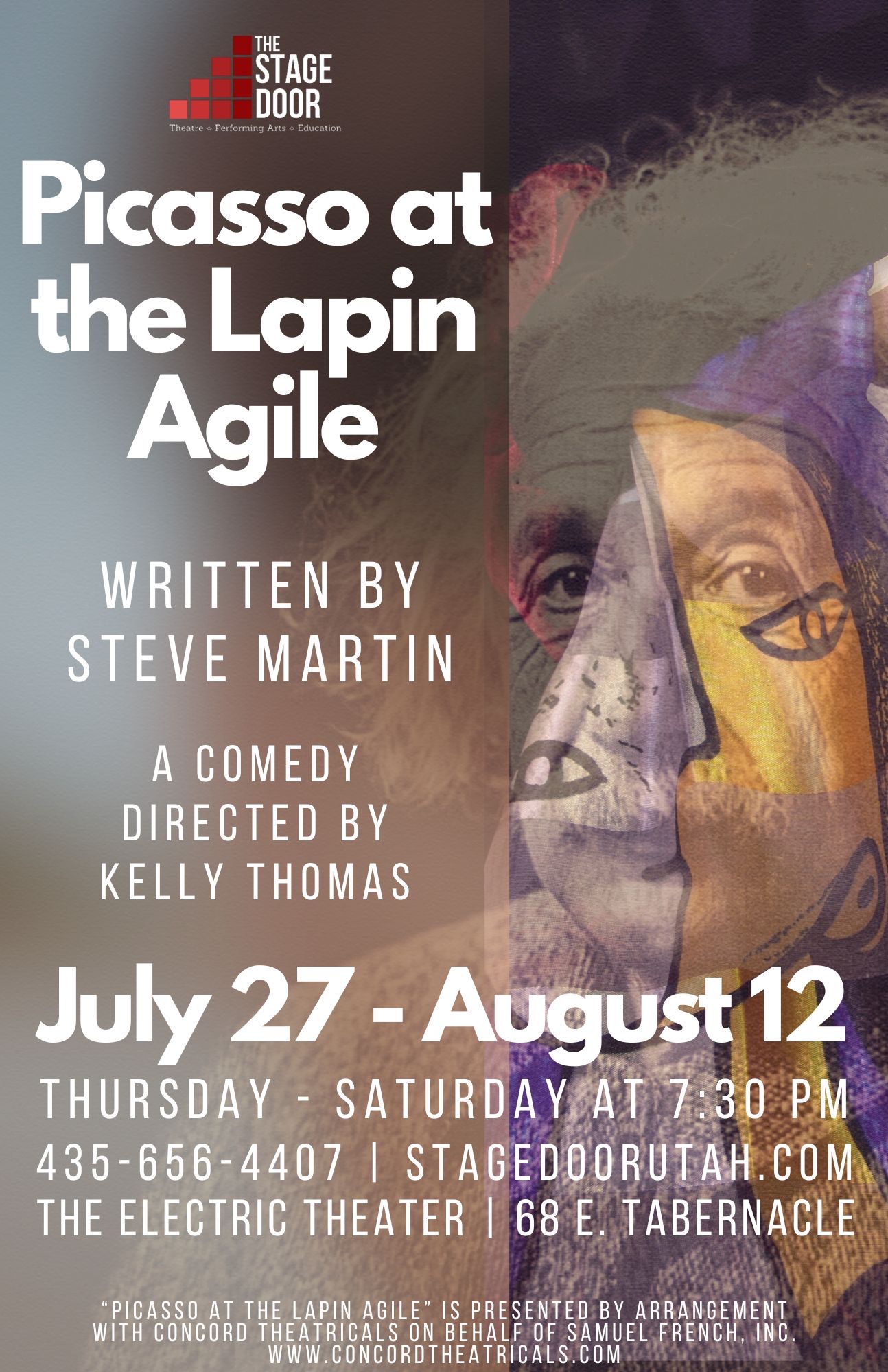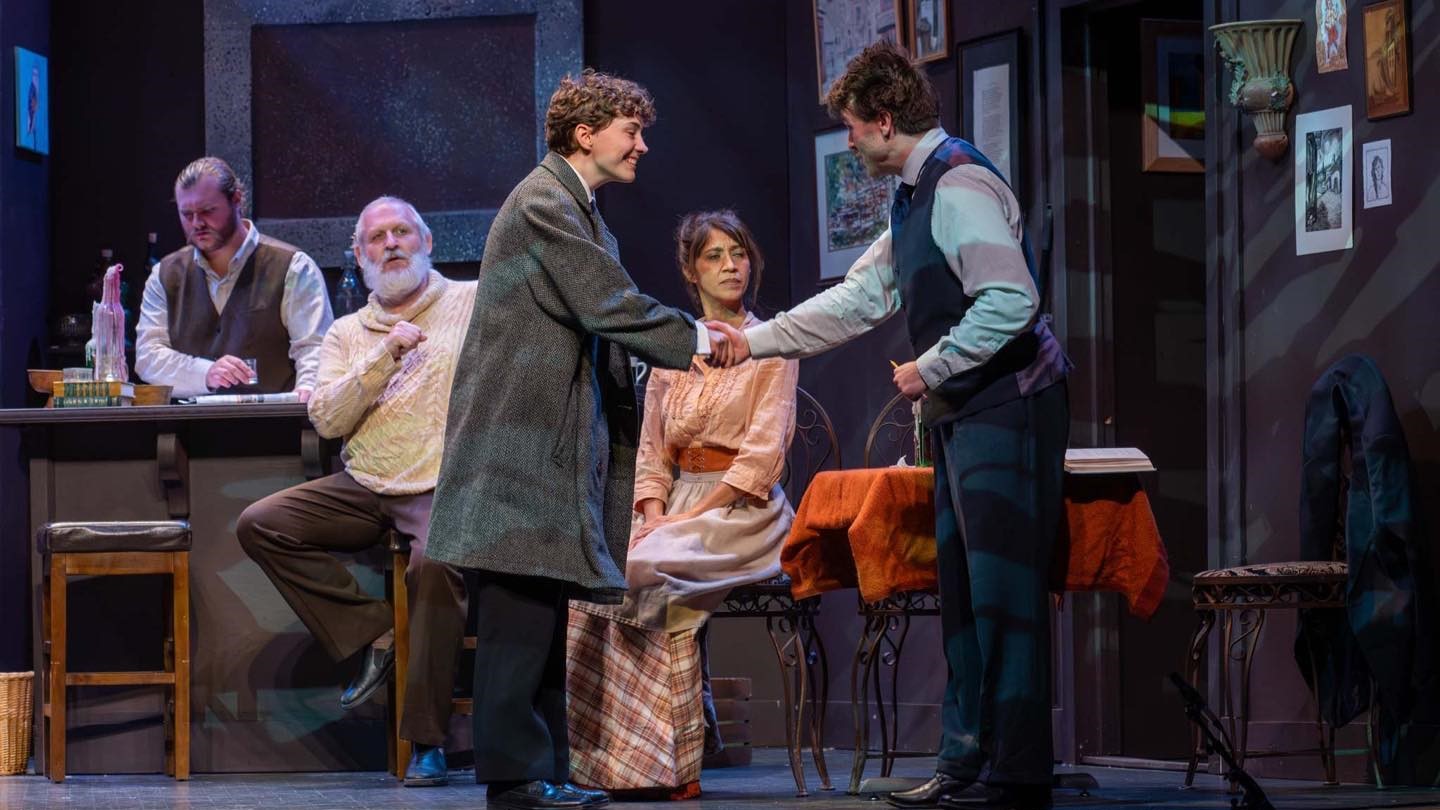ST. GEORGE — Two geniuses walk into a bar in Montmartre. It sounds like the promising start of a joke. Instead, it is the premise for The Stage Door’s current production of Picasso at the Lapin Agile. Directed by Kelly Thomas, The Stage Door has produced an enjoyable show to finish the summer.

Written and directed by Steve Martin in 1993, the show is full of comedy. In fact, Picasso at the Lapin Agile borders on farce, is full of innuendo, and yet can blindside me with surprising bouts of profound seriousness. Picasso at the Lapin Agile is set in Montmartre, Paris, in the year 1904. It follows two people who, in their respective ways, shape how the new century will unfold: Pablo Picasso (played by Coy Andrew Shinn Jr.) and Albert Einstein (played by Eric Liebhardt). These two compare and contrast their creative and intellectual processe with brilliant dizziness. The two characters even go as far as to duel with each other in an effort to see which contribution (science or art) is better. Wielding their weapons of paper and pencils, they make their paces, and “Draw!” But the contest is indeed a draw, as they recognize how vital the other is. The youthful geniuses are unaware of the impact their work will have on the world; however, they do know that what they will do is very important.
In Picasso at the Lapin Agile, whoever walks in the door of café controls the scene and becomes, for a moment, the most incredible person to walk in the room. This applies to almost everyone—Sagot (played by R. Scott Zaborski), Picasso’s eccentric art dealer who had me wiping my eyes with how badly I was laughing, and even the Countess (played by Jalee Scott), Einstein’s date and the only one truly able to keep up with Einstein intellectually. The only person this doesn’t apply to is Charles Dabernow Schmendiman (played by CJ Adams). While the young inventor has big dreams and aims to be as big as Einstein or Picasso, his incompetence manifests itself in his lack of knowledge and talent. Rather than leave the patrons of Lapin Agile taken aback with newfound ideas and excitement — as the other characters have done — Schmendiman’s scene and impact can be summarized in one of the most humorous lines: “What the hell was that?!”
Joshua Scott’s scenic design transforms the stage into a small Parisian café. The static set consists of walls covered with paintings, a doorway or hallway on either side of the “room,” which is furnished by a long rectangular table, a circular table, and a bar with a multitude of bottles, the chairs and benches on top of the tables at the beginning of the show. The space is well planned, and every inch of it is fully utilized in Thomas’s direction. The costume design by Chops Downward (who also did sound design) and Tonya Christensen also contribute to the period setting of the play.
Bartender Freddy (played by Chops Downward) serves as the bridge between the audience and the play. He breaks the fourth wall a few times, but not flippantly, and even, at one point early on in the show, jumps into the audience and borrows a playbill from an audience member to point out a mistake that a character is making. Freddy is one of the only characters that is on stage for almost the entirety of the play, a characteristic he shares with Gaston (played by Dean Jones), an old fisherman concerned with nothing but sex and drinking as he adjusts to “my new incarnation as an older man.” Freddy and Gaston are not only the most consistent characters in the show, but they also lend most of the comedy.
Brilliantly executed by the amazingly talented cast, The Stage Door has made Picasso at the Lapin Agile a show that is essential viewing for theatre lovers in southern Utah.
[box]The Stage Door production of Picasso at the Lapin Agile plays Thursdays through Saturdays at 7:30 PM through August 12, with an additional matinee on August 5 at 2 PM at The Electric Theater (68 E. Tabernacle St., St. George). Tickets are $15-21. For more information, visit thestagedoortheater.com.[/box]
